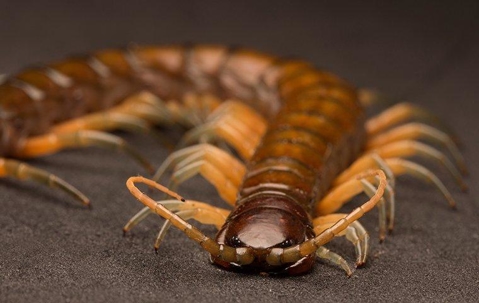Some pests look a lot scarier than they really are. Even if a pest doesn't pose an immediate threat to people or our pets, one pest problem often leads to others, so preventing even nuisance pests is important for total pest control. Centipedes are common garden pests that are often the first sign of larger pest problems, so it pays to learn how you can prevent them and the other pests they feed on.
Centipedes: An Overview
Centipedes are worm-like insects with many barb-like legs. Despite their name, they don’t really have 100 legs each, though the exact number of legs can vary by species and size. It’s this alien appearance that makes centipedes such imposing insects, especially because they are often several times the size of the other bugs we’re more used to seeing. To an ant, a centipede would be the size that a dinosaur is to us, a hulking predator with jaws that can swallow them up in a single bite. In addition to their imposing size, centipedes are almost completely protected by tough shells that protect them from larger predators. Because of their ability to hunt other garden pests, centipedes can actually be beneficial for those with green thumbs, since they eat many of the bugs that do damage to decorative plants.
Are They Dangerous?
In addition to being formidable predators, centipedes have some of the most potent venom in the insect world. They use their poisonous bites to paralyze their prey, even capable of stopping large spiders in their tracks. Despite these traits, centipedes aren’t dangerous to people or pets. Their venom isn’t strong enough to have an effect on us, and centipedes are entirely docile toward animals that they can’t eat. They also aren’t known to carry or transmit dangerous diseases like other invasive pests. However, just because they aren’t directly harmful doesn’t mean centipedes are necessarily good to have around. Because they feed on existing insect populations, they are always indicative of other, potentially worse pest problems.
What Attracts Centipedes?
Since centipedes don’t forage for food like other pests that get onto our property, they aren’t always attracted to the same things as other insects. Truly, the main thing that attracts centipedes is the presence of other insects that they can eat. Because of this, general pest prevention is really required in order to truly curb centipedes. Here are some ways to do this:
- Crack sealing: Centipedes will follow other bugs inside if they can crawl through a crack or hole to gain access to a structure. As such, you need to frequently look for and fix any exterior faults you find.
- Moisture control: Centipedes and other pests are attracted to moist areas, making certain areas of a home more attractive to them than others. Proper ventilation and pipe maintenance can reduce moisture buildup.
- Landscaping: Overgrown lawns and yard plants that encroach on structures can provide pests with easy hiding spots right outside. It’s not long until they find a way in or grow out of control.
White Knight Pest Control Has Your Answers
Because centipedes feed off other pests, preventing them can seem like an impossible task. Who has time to address all the insects that might be out in your yard? Rather than go it alone, enlist the help of pest professionals who know a thing or two about how to keep pests at bay. At White Knight Pest Control, our proven methods can eliminate existing pests and prevent future infestations. Let us get started on an inspection of your property today, so we can help you address all the things that are needed in order to keep centipedes and other invasive pests away.
Drive off centipedes and the pests they hunt with effective and safe solutions from White Knight Pest Control.

